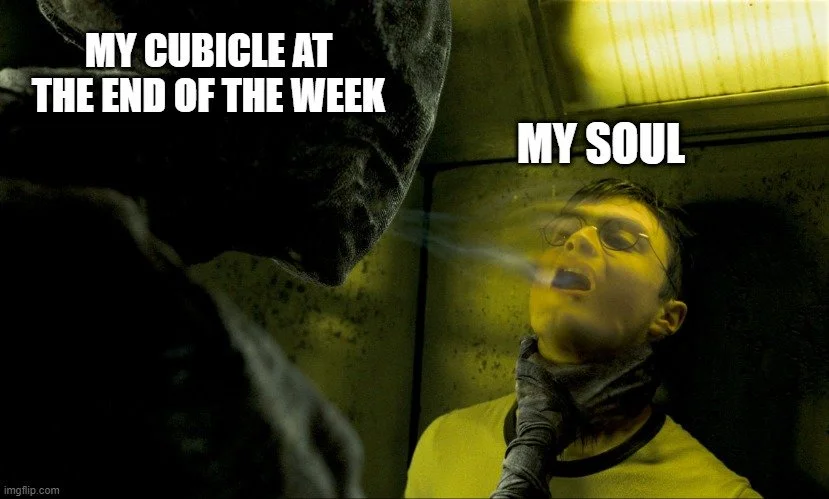If Your Culture Sucks, This is What You're Missing
“Two brains are better than one, and three brains are better than two,” one of my former supervisors was fond of saying.
Many of us crave cultures where everybody can freely share their ideas and opinions, believing that such environments lead to better experiences for all in the workplace and better outcomes for the people we serve.
Unfortunately, without one essential ingredient, attempts to create such environments will not only fail, but they will suck away people’s willpower to speak up.
Timothy R. Clark, who authored “The Four Stages of Psychological Safety” (2020), was the first to describe psychological safety as a dynamic process in which people feel included, safe to learn, safe to contribute, and safe to challenge the status quo. All of these must be extended to people without fear of embarrassment, marginalization, or punishment.
Clark argued that the foundational levels of psychological safety are a human right, not earned, but owed.
“Psychological safety is a postmaterialist need, but it is no less a human need than food or shelter,” Clark said. “In fact, you could argue that psychological safety is simply the manifestation of the need for self-preservation in a social and emotional sense.”
Cultures that invest in psychological safety are able to conjure uncommon levels of collaboration, embracing diverse viewpoints, innovation, performance, and problem-solving.
Learning is an activity fraught with emotional danger and potential risks. The idea that learning is a dispassionate, impersonal, and unemotional process is a perspective more supported by the politics of power than by a thorough and thoughtful study of biology, neuroscience, and psychology.
The fear-sensitive part of our brains has the potential to override people’s entire physiological systems. In the absence of emotional engagement, therefore, intellectual engagement can grind to a halt.
“When learner safety exists, the leader creates a learning process with low social friction and low emotional expense,” Clark said. “The learning process itself introduces more risk, more vulnerability, and more potential exposure to social and emotional harm.”
When a group possesses robust learner safety, the natural result is that camaraderie, creativity, engagement, innovation, and performance explode as people see how their contributions and perspectives are valued in real time.
Psychological safety is the difference between a culture that “sucks,” and one that doesn’t, according to Pixar co-founder Ed Catmull.
Catmull, who served as Pixar’s president for 30 years, co-authored “Creativity, Inc.” with Amy Wallace in 2014, which describes the culture of an organization that has produced hit movie after hit movie since its breakthrough film, “Toy Story,” in 1995.
One of the core elements of Pixar’s creativity-driven culture is operationalized through the “Braintrust.”
The Braintrust is a group of colleagues that assesses every movie Pixar makes again and again throughout the creative process. Although it is made up of directors, producers, and writers who have made some of Pixar’s most memorable movies, its most essential element, Catmull said, is candor because the Braintrust’s role is to “push toward excellence, and root out mediocrity.” The Braintrust has no authority of its own, and filmmakers can choose whether or not to follow any of the Braintrust’s suggestions.
The group starts with the premise that the starting point for every movie sucks, but through multiple rounds of candid, free, and open discussion, those ideas can grow and develop into something that doesn’t suck, maybe even something great.
Although it is one person’s work under the group’s microscope, the Braintrust believes that every project’s success is truly a team effort, where one person’s opinion is as welcome as any other person’s.
“Candor isn’t cruel. It does not destroy. On the contrary, any successful feedback system is built on empathy, on the idea that we are all in this together, that we understand your pain because we’ve experienced it ourselves,” Catmull wrote. “The Braintrust is fueled by the idea that every note we give is in service of a common goal: supporting and helping each other as we try to make better movies.”
Note the focus is not necessarily on making better movies, but helping each other in order to make better movies. The focus is on the person first, and the outcome second.
Building a culture with such high levels of psychological safety, however, is never a finished product.
“This part of our job is never done because, as it turns out, you can’t address or eliminate the blocks to candor once and for all,” Catmull said. “The fear of saying something stupid and looking bad, of offending someone or being intimidated, of retaliating or being retaliated against-they all have a way of reasserting themselves, even once you think they’ve been vanquished.”
When we focus on continuously fostering a culture that puts people first and outcomes second, we not only achieve excellence, we also create a culture that doesn’t suck.



